Other

“A new method for manufacturing electronics which prints high-performance silicon directly onto flexible materials could lead to breakthroughs in technologies including prosthetics, high-end electronics and fully bendable digital displays. In a new paper published in the journal NPJ Flexible Electronics …
News What Goes Up Must Come Down: Fujitsu Helps To Clean Up Space With First-Of-Its-Kind Mission Optimiser

“Less than a year on from the UK Space Agency committing £1 million in funding to combat space debris, Fujitsu UK has successfully combined quantum-inspired computing and Artificial Intelligence to support the transformation of space debris removal. Fujitsu’s prototype …
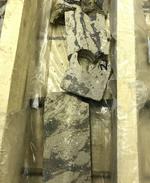
“New research into one of the most volatile periods in Earth’s geological history has narrowed down the precise age of a meteorite impact in the Ukraine around 65 million years ago, ruling out the chance that it contributed to …
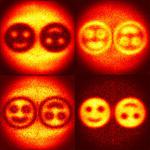
“A new type of quantum holography which uses entangled photons to overcome the limitations of conventional holographic approaches could lead to improved medical imaging and speed the advance of quantum information science. A team of physicists from the University of …

“A new generation of wearable devices could be powered by human sweat instead of conventional, environmentally-unfriendly batteries, scientists say. In a new paper published today in the journal Advanced Materials, engineers from the Bendable Electronics and Sensing Technologies (BEST) group …

“A new imaging method which exploits the unique properties of quantum-entangled photons to reveal hidden information could help move forward the developing field of quantum radar. Physicists from the University of Glasgow’s Optics Group describe in a paper published …

“A radical new method of producing drug molecules, which uses downloadable blueprints to easily and reliably synthesise organic chemicals via a programmable ‘chemputer’, could be set to democratise the pharmaceutical industry, scientists say. In a new paper published online in …

“A new type of energy storage system could revolutionise energy storage and drop the charging time of electric cars from hours to seconds. In a new paper published today in the journal Nature Chemistry, chemists from the University of Glasgow …

“A new type of artificial-intelligence-driven chemistry could revolutionise the way molecules are discovered, scientists claim. In a new paper published today in the journal Nature, chemists from the University of Glasgow discuss how they have trained an artificially-intelligent organic chemical …
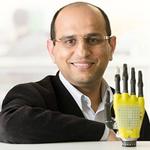
“A new form of solar-powered supercapacitor could help make future wearable technologies lighter and more energy-efficient, scientists say. In a paper published in the journal Nano Energy, researchers from the University of Glasgow’s Bendable Electronics and Sensing Technologies (BEST …

“An international team of researchers has developed a new light-based manipulation method that could one day be used to mass produce electronic components for smartphones, computers and other devices. A cheaper and faster way to produce these components could make …
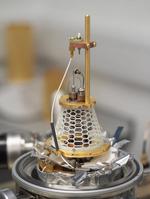
“A new form of compact cooling technology developed for space astronomy could pave the way for use of advanced superconducting detectors for better cancer treatments, driverless cars and practical quantum communications. In a Letter published in the journal Superconductor Science …
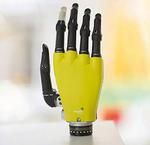
“A new way of harnessing the sun’s rays to power ‘synthetic skin’ could help to create advanced prosthetic limbs capable of returning the sense of touch to amputees. Engineers from the University of Glasgow, who have previously developed an …

